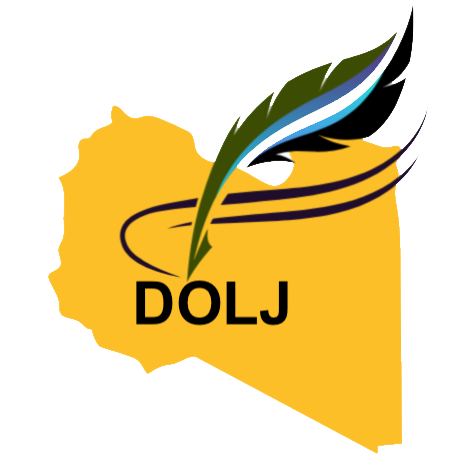Acceptance and Usage of E-Government in Developing and Developed Countries
DOI:
https://doi.org/10.71147/2d4rx695Keywords:
E-Government, Developed Countries, Developing Countries, Technology Acceptance, Digital Government.Abstract
The acceptance of electronic government (e-government) has become a critical component of public sector transformation, aimed at enhancing service delivery, transparency, and citizen engagement. This review article examines the patterns, challenges, and enablers of e-government acceptance and usage in both developed and developing countries. Through a comparative analysis of empirical studies, policy documents, and global benchmarks such as the United Nations E-Government Survey, the paper highlights the stark contrast in implementation outcomes between high-income and low- to middle-income nations. Developed countries such as South Korea, the United Kingdom, and Singapore demonstrate high levels of e-government maturity, driven by strong ICT infrastructure, high digital literacy, and robust institutional frameworks. Conversely, developing nations face challenges including limited infrastructure, low public awareness, digital illiteracy, and weak policy environments, which collectively hinder widespread acceptance. Despite these disparities, the study underscores that socio-economic status alone does not guarantee e-government success; instead, context-specific strategies, inclusive digital policies, and user trust are essential to achieving sustainable and equitable digital governance. The findings offer valuable insights for policymakers and practitioners aiming to bridge the digital divide and enhance e-government readiness globally
References
Abouchedid, K., & Eid, G. M. (2006). E-learning challenges in the Arab world : revelations from a case study profile. https://doi.org/10.1108/09684880410517405
Ahmad, M. O., Markkula, J., & Oivo, M. (2012). Factors influencing the adoption of e-government services in Pakistan. European, Mediterranean & Middle Eastern Conference on Information Systems, January, 118–133.
Abdallah, R. M., & Elgade, A. R. (2024). Evaluating the Effect of Alpha and Beta Radiation on Mobile Phone Vibrations. Derna Academy Journal for Applied Sciences, 2(2), 146-154.
Beukes, B., Kirstein, M., Kunz, R., & Nagel, L. (2017). Innovators to laggards – how South African students adopted and perceived technologically enhanced learning. Accounting Education, 0(0), 1–18. https://doi.org/10.1080/09639284.2017.1417875
Bhatt, S. R., & Khanal, J. (2019). Digital Nepal: Opportunities and Challenges. Digital Nepal: Opportunities and Challenges, 34(1), 16–33.
Brown, A., Fishenden, J., Thompson, M., & Venters, W. (2017). Appraising the impact and role of platform models and Government as a Platform (GaaP) in UK Government public service reform: Towards a Platform Assessment Framework (PAF). Government Information Quarterly, 34(2), 167–182.
Chen, Y. N., Chen, H. M., Huang, W., & Ching, R. (2006). E-Government Strategies in Developed and Developing Countries : An Implementation Framework and Case Study. 14(March), 23–46.
Chung, C., & Kim, S. (2019). A Comparative Study of Digital Government Policies , Focusing on E-Government Acts in Korea and the United States. Jurnal of Electronics, 8, 13–32. https://doi.org/:10.3390/electronics8111362
Dewa, M., Zlotnikova, I., & Science, C. (2014). C itizens ’ Readiness for e-Government Services in Tanzania. 3(4), 37–45.
Eldresi, F. Y., Sweisi, N. A., & Adam, C. (2012). The FALL 3rd International Conference on Society and Information Technologies : ICSIT 2012 November 13 - 16 , 2012 – Orlando , Florida , USA Libya before & after the Arab Spring to articulate infrastructure challenges with recommendations of enhancing the.
Gao, W. (2020). Socio-Cultural Determinants of Malaysia and Singapore Innovative Development. Skhid Journal, 167(3), 16–20. https://doi.org/10.21847/1728-9343.2020.3(167).206739
Gupta, K. P., Bhaskar, P., & Singh, S. (2016). Critical Factors Influencing E-Government Adoption in India: An Investigation of the Citizens’ Perspectives. Journal of Information Technology Research (JITR), 9(4), 28–44.
Kibria, M. G., & Hong, P. (2024). E-government in Asian countries: a conceptual framework for sustainable development. Transforming Government: People, Process and Policy, 18(4), 616–637.
Kumar, V., Mukerji, B., Butt, I., & Persaud, A. (2007). Factors for Successful e-Government Adoption : a Conceptual Framework. 5(1), 63–76.
Lee, J., & Moon, M. J. (2020). E-government and digital governance. In Routledge Handbook of Korean Politics and Public Administration (pp. 328–344).
Mhina, J. R. A., Johar, M. G., & Alkawaz, M. H. (2018). The Influence of Perceived Confidentiality Risks and Attitude on Tanzania Government Employees ’ Intention to Adopt Web 2 . 0 and Social Media for Work-Related Purposes. International Journal of Public Administration, 42(7), 558–571. https://doi.org/10.1080/01900692.2018.1491596.
Rabaa, A. (2018). The use of UTAUT to investigate the adoption of e-government in Jordan : a cultural perspective. International Journal of Business Information Systems, 24(3), 285–315. https://doi.org/10.1504/IJBIS.2017.10002806.
UN. (2016). E-Government Survey 2016 /E-Government in Support of Sustainable Development. https://publicadministration.un.org/egovkb/Portals/egovkb/Documents/un/2016-Survey/Executive Summary.pdf.
UNCTAD. (2020). The least developed countries: Escaping the poverty trap. UNITED NATIONS CONFERENCE ON TRADE AND DEVELOPMENT. http://unctad.org/en/Docs/ldc2002_en.pdf.
UNDESA. (2018). United Nations E-Government Survey 2018: Gearing E-Government to support transformation towards sustainable and resilient societies.
Yadav, K., & Tiwari, S. (2014). E-Governance in India : Opportunities and Challenges. 4(6), 675–680.
Downloads
Published
Issue
Section
License
Copyright (c) 2025 Nadir S. Nabous, Faitouri A. aboaoja, Khaled I. A. Amrouni, Khalid Muhammad Ahmed Krayz Allah, Hatem S Y Nabus (Author)

This work is licensed under a Creative Commons Attribution-NonCommercial 4.0 International License.










